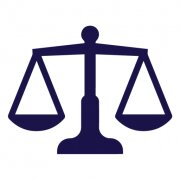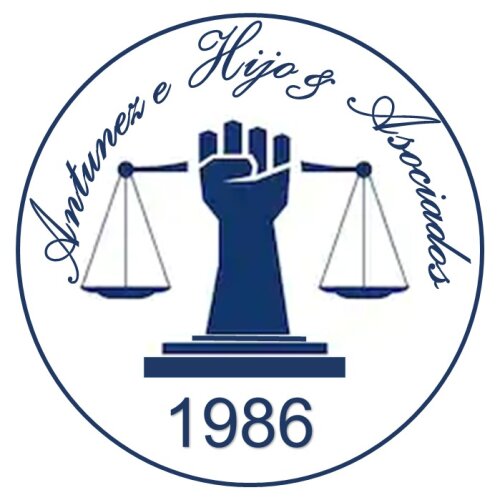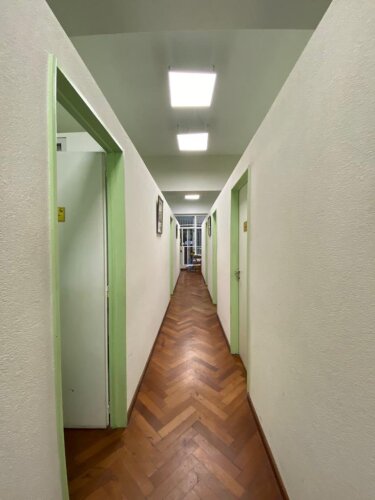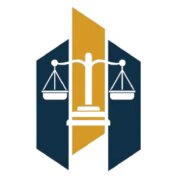Best Discrimination Lawyers in Argentina
Share your needs with us, get contacted by law firms.
Free. Takes 2 min.
Or refine your search by selecting a city:
List of the best lawyers in Argentina
About Discrimination Law in Argentina
Discrimination in Argentina is addressed through various legal frameworks aimed at promoting equality and preventing unfair treatment based on characteristics such as race, gender, sexual orientation, nationality, religion, or disability. The Argentine Constitution and numerous local and international laws provide mechanisms to combat discrimination and foster a more inclusive society. The country has been progressive in implementing anti-discrimination laws and seeks to protect the rights of all individuals, ensuring equal opportunities and treatment.
Why You May Need a Lawyer
Individuals may require legal assistance in discrimination cases for a variety of reasons. Common situations include experiencing discriminatory practices in the workplace, housing, education systems, or public accommodations. A lawyer specialized in discrimination can help navigate complex legal frameworks, represent clients in court, facilitate mediation, and ensure that their rights are protected and justice is served. Having expert legal advice is crucial when filing complaints or claims to ensure successful outcomes.
Local Laws Overview
Argentina's anti-discrimination laws are grounded in both constitutional and statutory law. The Constitution of Argentina enshrines the principle of equality and prohibits discrimination. Additionally, the Anti-Discrimination Act (Law No. 23,592) is a cornerstone legislation that provides legal recourse for individuals facing discrimination. The country is also a signatory to several international treaties, such as the International Covenant on Civil and Political Rights and the Convention on the Elimination of All Forms of Racial Discrimination, further reinforcing its commitment to combat discrimination.
Frequently Asked Questions
What is considered discrimination under Argentine law?
Discrimination occurs when someone is treated differently or unfairly based on personal characteristics such as race, gender, or religion. Argentine law prohibits such conduct in various settings including employment, education, and public services.
How can I prove discrimination in Argentina?
Proving discrimination typically involves demonstrating that differential treatment occurred and that it was based on prohibited grounds. Evidence such as witness testimony, documented patterns of behavior, or direct statements can be crucial in making a case.
Can I bring a discrimination case against a private business?
Yes, individuals can file complaints against private businesses if they believe they have been subjected to discriminatory practices. Argentine law applies to both public and private entities.
What compensation am I entitled to if I win a discrimination case?
Compensation can vary depending on the case but may include monetary damages for emotional distress, lost wages, reinstatement in employment, or policy changes by the perpetrating entity.
Is there a time frame to file a discrimination claim?
Yes, discrimination claims must be filed within a certain period after the alleged incident. The time frames can depend on the type of discrimination and may vary, so it's advisable to consult a lawyer promptly.
Can I pursue a discrimination claim without a lawyer?
While it's possible to file a claim without legal representation, having a lawyer can significantly enhance the likelihood of a successful outcome due to their expertise and understanding of legal procedures.
Are there organizations that can help me with a discrimination issue?
Yes, several non-governmental organizations and government agencies in Argentina focus on human rights and anti-discrimination efforts, such as INADI (National Institute Against Discrimination, Xenophobia, and Racism).
How is workplace discrimination handled in Argentina?
Workplace discrimination is addressed through labor laws which provide mechanisms for complaints and resolution. Employers can face legal consequences if found guilty of discriminatory practices.
What role does INADI play in combating discrimination?
INADI is a governmental body tasked with preventing and combating discrimination, xenophobia, and racism. It provides education, policy recommendations, and channels for filing complaints.
Can refusing service to someone based on appearance be considered discrimination?
Yes, refusing service based on personal characteristics such as race or ethnicity is considered discrimination and is prohibited under Argentine law.
Additional Resources
For those seeking assistance or more information about discrimination issues in Argentina, the following resources may be helpful:
- INADI (National Institute Against Discrimination, Xenophobia, and Racism): Offers support and resources for individuals facing discrimination.
- Human Rights Secretariat of Argentina: Provides information and support regarding rights and legal recourses.
- CELS (Center for Legal and Social Studies): An Argentine organization aimed at promoting human rights and providing legal support.
Next Steps
If you believe you have experienced discrimination and need legal assistance, consider taking the following steps:
- Document all instances of discrimination, including times, places, and any involved parties.
- Consult with a qualified lawyer who specializes in discrimination law to assess your case.
- File a formal complaint with appropriate bodies, such as INADI or relevant labor organizations.
- Seek support from human rights organizations that can offer guidance and further resources.
- Follow legal advice and be prepared to engage in mediation or court proceedings if necessary.
- Stay informed about your rights and the legal processes in Argentina to better understand the options available to you.
Lawzana helps you find the best lawyers and law firms in Argentina through a curated and pre-screened list of qualified legal professionals. Our platform offers rankings and detailed profiles of attorneys and law firms, allowing you to compare based on practice areas, including Discrimination, experience, and client feedback.
Each profile includes a description of the firm's areas of practice, client reviews, team members and partners, year of establishment, spoken languages, office locations, contact information, social media presence, and any published articles or resources. Most firms on our platform speak English and are experienced in both local and international legal matters.
Get a quote from top-rated law firms in Argentina — quickly, securely, and without unnecessary hassle.
Disclaimer:
The information provided on this page is for general informational purposes only and does not constitute legal advice. While we strive to ensure the accuracy and relevance of the content, legal information may change over time, and interpretations of the law can vary. You should always consult with a qualified legal professional for advice specific to your situation.
We disclaim all liability for actions taken or not taken based on the content of this page. If you believe any information is incorrect or outdated, please contact us, and we will review and update it where appropriate.
Browse discrimination law firms by city in Argentina
Refine your search by selecting a city.
















